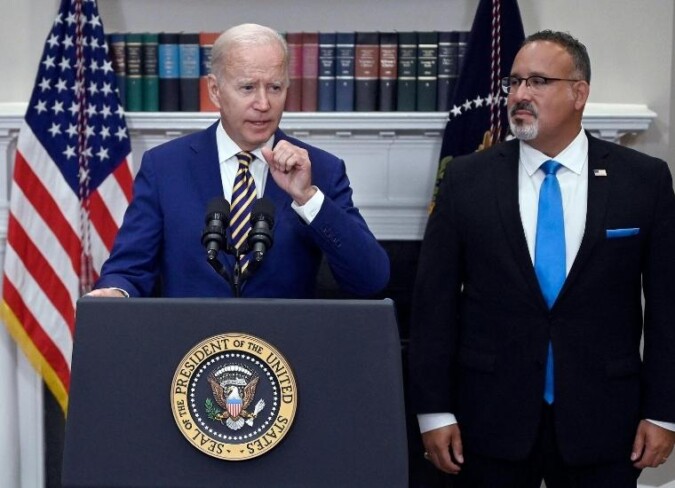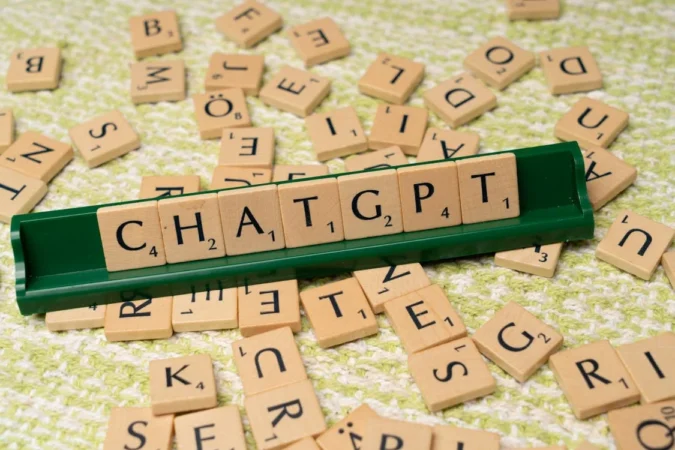As some federal student loan borrowers around the country prepare to have their loans forgiven under Vice President Joe Biden’s debt cancellation plan, other borrowers may question the initiative’s legality.
Depending on whoever you ask, the legality of Biden’s proposal is highly subjective. However, the Biden administration has strenuously defended the legitimacy of removing 20 million persons’ student loan debt.
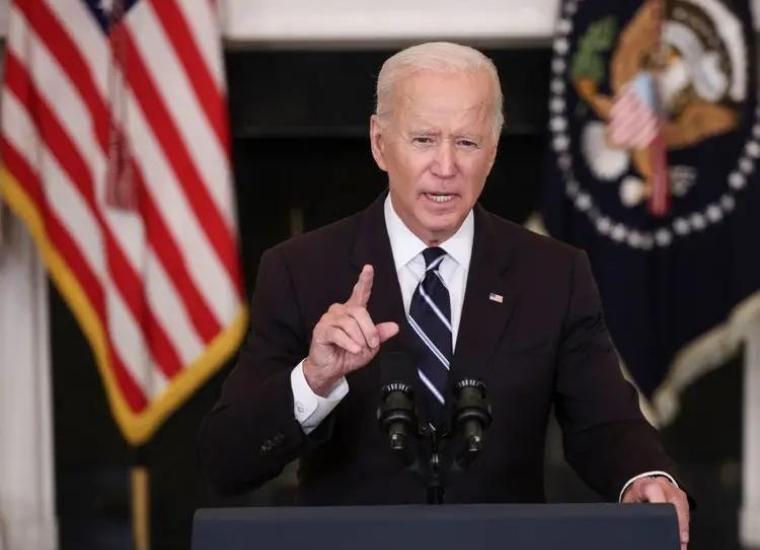
According to the Biden administration, Biden’s plan will provide more lenient loan payback terms for the remaining 55%. These terms include, among other things, halving the amount that borrowers must pay each month — from 10% to 5% of discretionary income — and paying their unpaid monthly interest.
Must read: At Least Five Killed When Russian Artillery Hits Central Kharkiv: The Mayor
National Economic Council Deputy Director Bharat Ramamurti stated during a press briefing on Friday that the Department of Justice, Office of Legal Counsel, and the Department of Education’s general counsel’s office have reviewed the text of the statute and believe that the action taken by the Secretary and the administration is legally justified.
“The president made it clear from the outset that he did not want to go with this unless it was apparent that he had the legal authority to do so,” Ramamurti added. “… When he became office, one of the first things he did was request this legal opinion.”
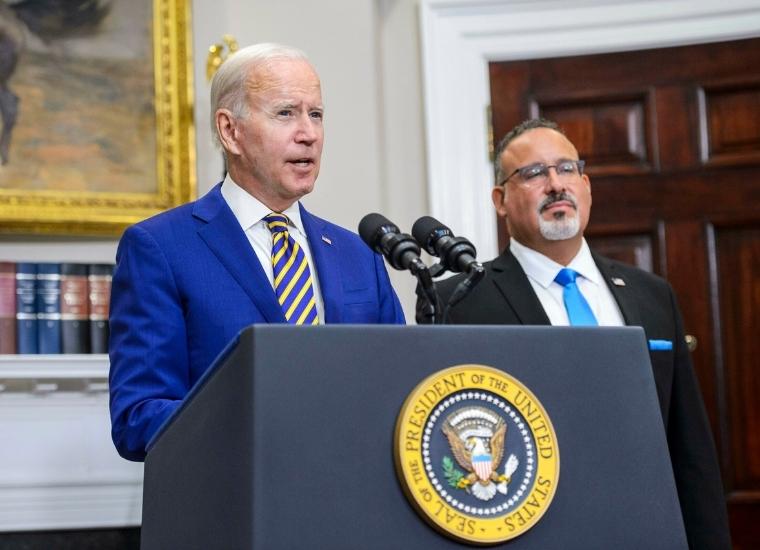
Citing the HEROES Act, the Department of Education and the Department of Justice issued a legal opinion on Tuesday defending the innovative administrative action.
The statute grants the Secretary of Education extensive discretion to waive student loan obligations during defined periods — such as the present COVID-19 epidemic — for specific causes, including mitigating the economic effects of conflicts or national emergencies.
The opinion states, “The Secretary of Education has used this authority under this administration and every administration since the passage of the Act to provide relief to borrowers in connection with a war, other military operation, or national emergency, including the current moratorium on student loan payments and interest.”
On Friday, during a news conference, White House officials frequently fielded concerns about the prospects of Biden’s plan in court and said they anticipate legal challenges.
The Supreme Court’s June ruling against the Environmental Protection Agency was based on the “major questions doctrine,” which requires Congress to grant agencies specific permission to take extraordinary actions. According to him, this technique might be utilized to undermine Biden’s plan.
Must read: The Pope criticizes Ukraine’s “immoral” and “barbaric” violence
Adam S. Minsky, an attorney for student loans, told ABC News: “Recent Supreme Court decisions indicate that at least some of the justices on the current court may consider this type of expansive executive action as violating congressional intent.” However, as recently demonstrated, that isn’t always the case.
“We believe we have substantial legal grounds,” Ramamurti said. “It will be up to the courts to evaluate whether or not these claims are viable.”.
According to Jed Shugerman, a law professor at Fordham University, the order is unlikely to “survive a judicial challenge.”
“If the Biden administration wishes to prevail in an eventual court challenge, it either moves to the more suitable statute as the legal basis for this policy (the Higher Education Act of 1965) or drastically reduce its policy for certain COVID relief claims,” Shugerman told ABC News.
Minksy stated that this is an uncharted area and added that both Biden and previous President Donald Trump had utilized the HEROES Act to suspend federal loan payments, interest, and collection since the outbreak of the COVID-19 virus.
Biden’s plan will eliminate at least $10,000 in federal student loan debt for Americans who earned less than $125,000 per year or less than $250,000 per household in the 2020 or 2021 tax year.
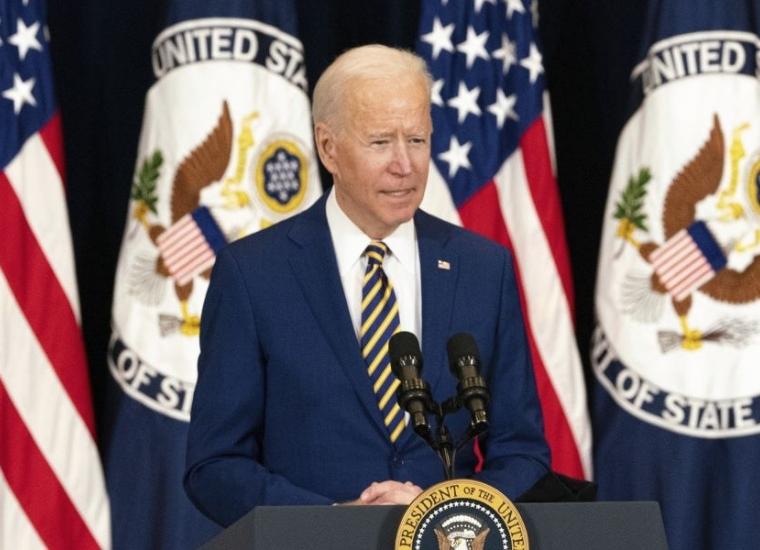
It would eliminate up to $20,000 for Americans in the same income level who received Pell grants to finance college.
It is uncertain when a borrower’s account balance will alter. According to the White House, applications for student debt relief will be available beginning in early October, with relief reaching borrowers by early to mid-November.

